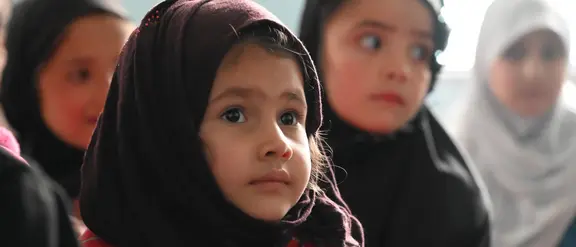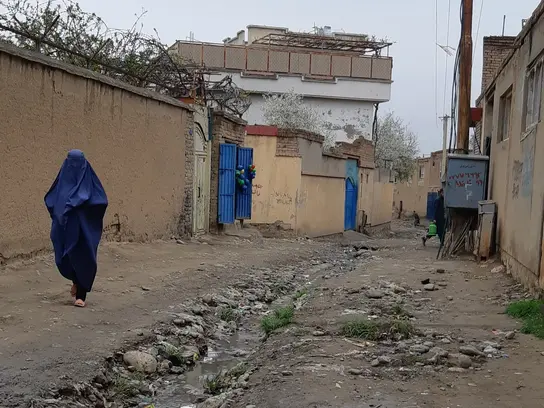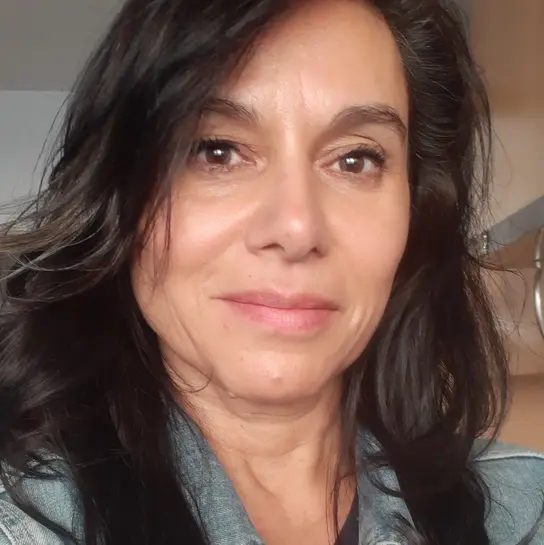Afghanistan: The situation for women and girls
Sandra Fenkl and Chris Hartmann were on location for Terre des Hommes in the spring – in Kabul, Herat, and Jalalabad, among other places. These are cities whose names are familiar to everyone from the news – from the time before the Taliban seized power in August 2021. Since then, Afghanistan has faded from the headlines.
The interview was published on October 14, 2024, in the NOZ (Neue Osnabrücker Zeitung) and was conducted by editor Sandra Dorn.
Ms. Fenkl, what was it like for you, as a self-confident woman who is active in demonstrations against extremism and racism in Osnabrück, to be in Afghanistan?
Fenkl: Of course, you prepare for such a trip; you know you have to behave differently. But actually being there is something else entirely. On the first day, right at the airport, our project partner handed me a bag containing a hijab and an abaya [a headscarf and a kind of outer garment, editor's note]. I wore that for the next two weeks. That alone is a strange feeling.
How would you describe that feeling?
Fenkl: It's like a corset, and it immediately tells you where you belong as a woman in this society—in the back row. You behave differently. Immediately and automatically. At first, I always walked with my head down. And I was constantly worried that my headscarf would slip down. But I was well protected. We were there as a group—with Chris and our board member Beat Wehrle, and two other colleagues from India, Ingrid and Gwenita. Our Afghan project partners were also always by our side.
Had you been to Afghanistan before the Taliban's renewed rise to power? How drastically has life there changed?
Hartmann: We weren't, but colleagues were. From what I've heard, it was different in the cities, freer. In the countryside, it was always difficult, and travel was virtually impossible because of the numerous attacks. This is generally viewed positively in the countryside, but of course, it's also a false sense of security.
Fenkl: Heavily armed Taliban are on every corner. Our hotel resembled a high-security compound. You have to check in there like at an airport. All of this dates back to the time of the attacks.
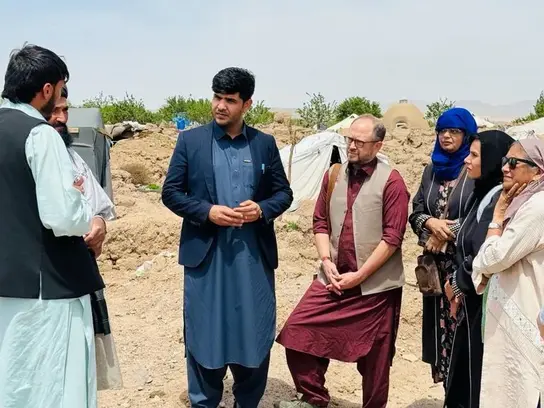
What is the situation of women in Afghanistan?
Fenkl: The women are stuck at home. Their only activity is social media. Otherwise, they do the housework and wait to be married. They are practically imprisoned. They are allowed to run occasional errands, but they are not allowed to gather in public, they are not allowed to visit parks, gyms, swimming pools, cinemas, nothing.
Hartmann: You can still see them at the markets. But everything Sandra mentioned was possible in the past, at least in the cities.
Fenkl: I met an 18-year-old who told me she had finished school and was preparing for university when the Taliban came. Every hope, every dream died instantly. The women are extremely disappointed, hopeless, and depressed. Many are having suicidal thoughts.
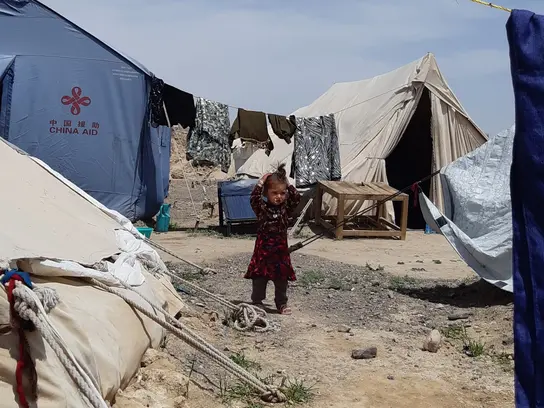
What about hope on the ground?
Fenkl: There are also women who refuse to be defeated. They hope that the situation will improve someday. We were in a museum where photography was forbidden, and a woman secretly took a photo and triumphantly told me, "I broke the law!" It's quite telling that such small gestures of "resistance" mean so much.
How are the children in Afghanistan doing?
Fenkl: There is child labor and child marriage. Girls are promised to a man who may be significantly older when they are nine or ten years old. They are married at 14 or 15. Then the husband and mother-in-law rule over the newlywed girl, often with an iron fist. It is hard to comprehend how little solidarity sometimes exists among the women.
Hartmann: The typical day for children of primary school age often looks like this: In the morning they attend Koranic school, then possibly other classes, and then they have to work: polishing shoes, collecting trash; many are sent out to beg. Only in the evening do they get a proper meal.
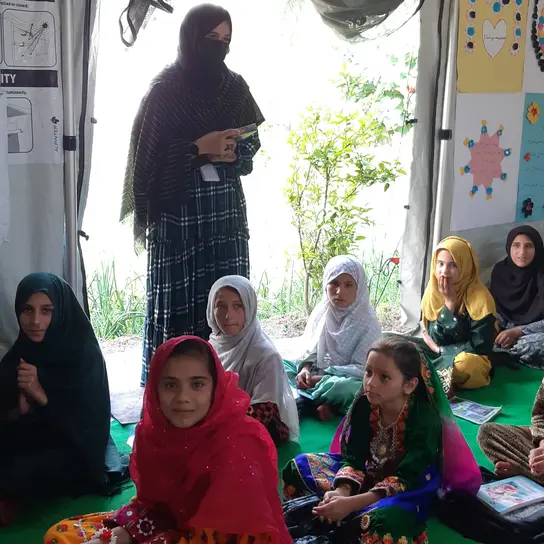
What work is still possible for Terre des Hommes in Afghanistan?
Hartmann: We were able to retain all our partners from before the takeover and are continuing to work on the projects we had previously, although we had to adapt them. We had many classes where, for example, we supported girls and young women with remedial instruction to help them pass the university entrance exam. Unfortunately, that has become impossible. Education for girls is now only available up to the sixth grade.
What is Terre des Hommes doing instead?
Hartmann: Our partners offer, for example, preparatory classes for school enrollment and projects for street children. For older people, we now also have the opportunity to provide vocational training and literacy programs, as well as programs addressing food security. The vocational training measures are particularly beneficial, as they improve the economic situation of households.
Fenkl: Social workers are still allowed to go into the field and talk to the women. This psychosocial work is very important. There are many things that burden the women. Sharing experiences with others in similar situations gives them strength.
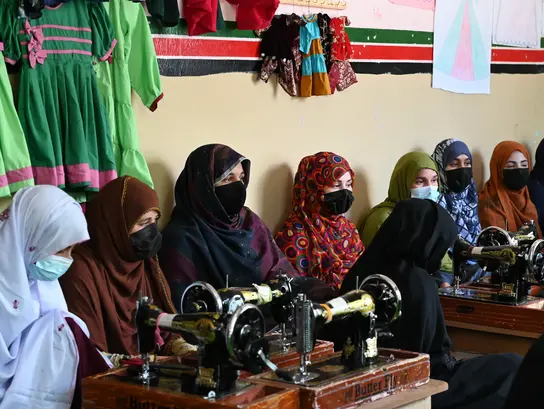
What professions are women in Afghanistan still allowed to pursue?
Hartmann: Sewing, embroidery, weaving, cooking - basically anything they can do at home.
Fenkl: Incidentally, all the men we spoke to disagreed with the Taliban's strict regulations because they see how their wives, sisters, and daughters are suffering. The women's income is also gone. The men now often have to provide for the family alone. This puts a strain on them, and suicide rates among the men are also higher.
Hartmann: We spoke with university graduates who are now learning how to repair cell phones. Unemployment is extremely high, as is the lack of prospects.
What moved you the most on your journey?
Fenkl: In hardly any other country in the world are women's rights as restricted as in Afghanistan; gender apartheid exists there. We visited many girls' classes. The girls are incredibly inquisitive and bright, they wear magnificent, colorful clothes: it's life in all its fullness. But what becomes of these girls? This curiosity, this striving, and this hope for a self-determined life are crushed – it stays with you. I still have contact with some Afghan women, but what else can I offer but words of comfort and encouragement? Incidentally, our partner organizations in Afghanistan have deeply impressed me with their unwavering commitment to helping girls and women – this will to persevere against all odds is a role model for me.
Hartmann: What impressed me most was the potential, the will, and the resilience of the people there. It is so important that this country is not forgotten. We and our partner organizations do not want to abandon the women and children and are trying to negotiate the greatest possible scope for action with the local authorities so that we can continue to support them.
Sandra Fenkl is a philologist, 55 years old, and has worked at Terre des Hommes for 25 years, where she is a fundraising officer. Chris Hartmann is 49. The geographer is a humanitarian aid officer at Terre des Hommes .
